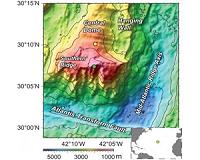| . |  |
. |
Paris (AFP) Nov 22, 2010 At least 1.3 million sharks, many listed as endangered, were harvested from the Atlantic in 2008 by industrial-scale fisheries unhampered by catch or size limits, according to a tally released Monday. The actual figure may be several fold higher due to under-reporting, said the study, released by advocacy group Oceana on the sidelines of a meeting of the International Commission for the Conservation of Atlantic Tunas (ICCAT). Convening in Paris through November 27, the 48-member ICCAT is charged with ensuring that commercial fisheries are sustainable. It has the authority to set catch quotas and restrictions. While the global spotlight has been trained on the plight of Atlantic bluefin tuna, many species of high-value sharks are in even more dire straits, say marine biologists. "Sharks are virtually unmanaged at the international level," said Elizabeth Griffin Wilson of Oceana. "ICCAT has a responsibility to protect our oceans' top predators." Under the UN Convention on the Law of the Sea, "highly migratory" sharks must be managed by international bodies. Of the 21 species found in the Atlantic, three-quarters are classified as threatened with extinction. North Atlantic populations of the oceanic white tip, for example, have declined by 70 percent, and hammerheads by more than 99 percent, according to the International Union for the Conservation of Nature (IUCN). Other species -- including the porbeagle, common thresher and shortfin mako -- have also been overexploited, and may be teetering on the brink of viability. Many are fished for their fins -- prized as a delicacy in Chinese cuisine -- and then tossed, dead or dying, back into the sea once the choice morsels have been sliced off. The practice is prohibited, but loopholes in the regulation have allowed the ban to be widely ignored. Oceana and several conservation groups, backed by some governments, have called upon ICCAT to set catch quotas and other protective measures for these and other vulnerable sharks. The United States has proposed requiring that all sharks be brought back to shore whole, which would boost enforcement of the finning ban and help scientists measure population levels. Japan -- which quashed a drive earlier this year to protect four threatened shark species under the UN Convention on International Trade in Endangered Species (CITES) -- is now urging ICCAT to prohibit fishing one of them, the oceanic white tip. The initiative "is an example showing our commitment for conservation of shark resources," the head of the Japanese delegation said in an opening statement. Sharks have reigned at the top of the ocean food chain for hundreds of millions of years. But the consummate predators are especially vulnerable to industrial-scale overfishing because they mature slowly and produce few offspring. "The classic fisheries management approach of 'fishing down' a given population to its so-called maximum sustainable yield, and then assuming it can recover, does not work for sharks," said Matt Rand, a shark expert at the Washington-based Pew Environment Group. Tens of millions of the open-water hunters are extracted from global seas every year. Regional studies have shown that when shark populations crash the impact cascades down through the food chain, often in unpredictable and deleterious ways.
Share This Article With Planet Earth
Related Links Water News - Science, Technology and Politics
 Busy Microbial World Discovered In Deepest Ocean Crust Ever Explored
Busy Microbial World Discovered In Deepest Ocean Crust Ever ExploredCorvallis OR (SPX) Nov 22, 2010 The first study to ever explore biological activity in the deepest layer of ocean crust has found bacteria with a remarkable range of capabilities, including eating hydrocarbons and natural gas, and "fixing" or storing carbon. The research, just published in the journal PLoS One, showed that a significant number and amount of bacterial forms were present, even in temperatures near the boil ... read more |
|
| The content herein, unless otherwise known to be public domain, are Copyright 1995-2010 - SpaceDaily. AFP and UPI Wire Stories are copyright Agence France-Presse and United Press International. ESA Portal Reports are copyright European Space Agency. All NASA sourced material is public domain. Additional copyrights may apply in whole or part to other bona fide parties. Advertising does not imply endorsement,agreement or approval of any opinions, statements or information provided by SpaceDaily on any Web page published or hosted by SpaceDaily. Privacy Statement |